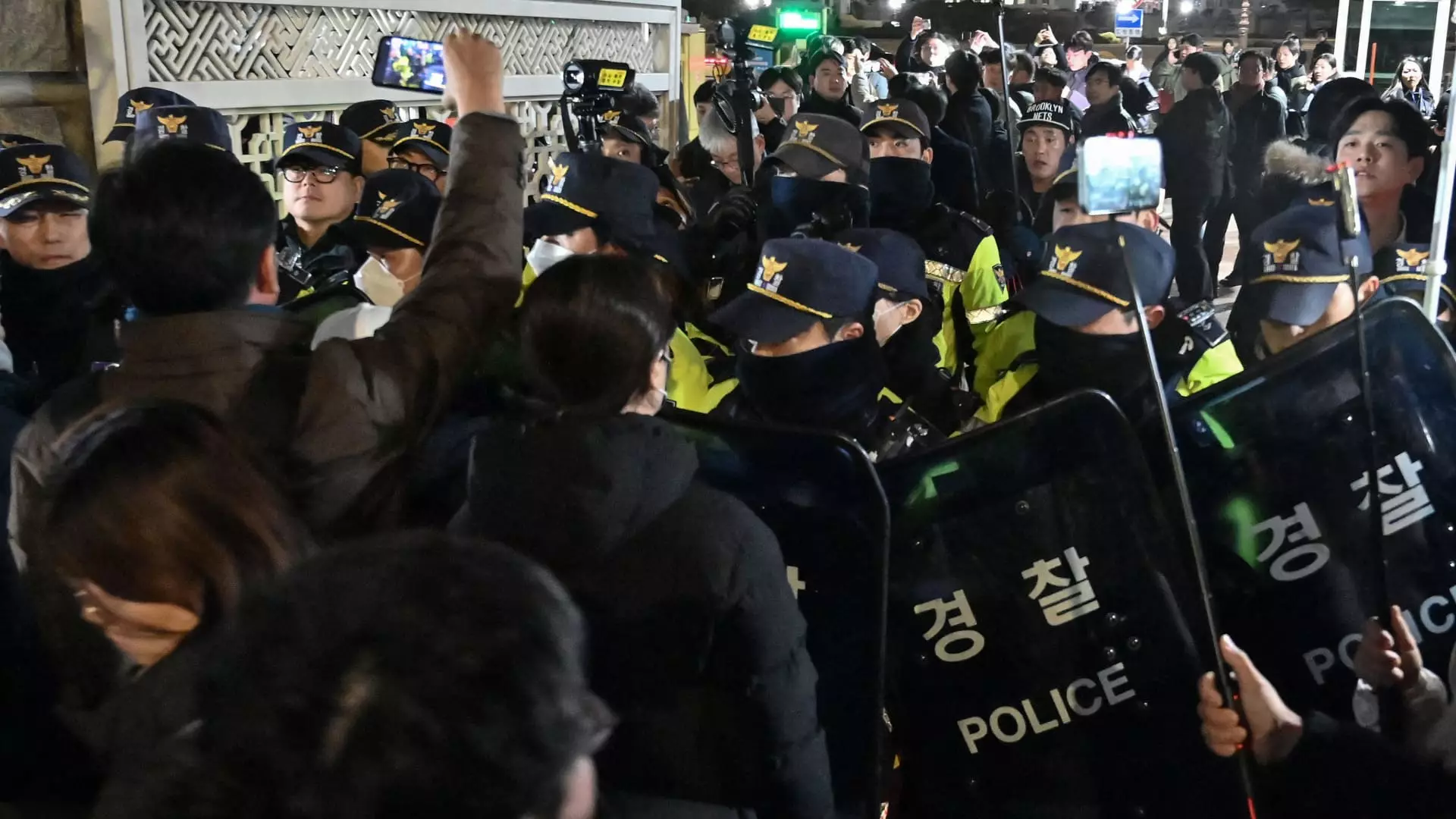On a tumultuous Tuesday, South Korean stocks faced significant losses as global markets reacted to an alarming declaration from President Yoon Suk Yeol. After invoking emergency powers and announcing martial law—a move that sent shockwaves through the financial community—the iShares MSCI South Korea ETF plummeted as much as 7%, reaching a troubling 52-week low. Although the ETF later reduced its losses to approximately 2.4%, the initial response signaled investor anxiety regarding the stability of South Korea, now viewed as a potential epicenter of unrest amidst volatile geopolitical tensions.
The ramifications of Yoon’s declaration were felt across various sectors. Key players like Korea Electric Power and e-commerce giant Coupang suffered sharp declines, with their American Depositary Receipts (ADRs) dropping 5% and 6%, respectively. Additionally, KT Corporation, a major telecommunications provider, experienced a 3% fall, while South Korea’s steel powerhouse, Posco, witnessed a decline exceeding 6%. These declines underscore the profound impact of sudden political decisions on investor sentiment, illustrating how even large, established companies are vulnerable to the implications of government instability.
Within hours of Yoon’s announcement, there was a swift legislative counteraction. In an extraordinary show of unity, 190 of the 300 National Assembly lawmakers convened to repeal the martial law decree. This rapid response not only reflects the gravity of the situation but also highlights the contentious political climate in South Korea. Yoon’s accusations against opposition parties, suggesting they were unduly sympathetic towards North Korea, raised questions about the motives behind such drastic measures. By not clarifying how martial law would affect governance, Yoon’s administration left room for uncertainty regarding civil liberties and the rule of law.
The Korea Exchange’s immediate decision to hold an emergency meeting speaks volumes about the regulatory body’s commitment to maintaining market order amid political upheaval. As officials deliberate on measures to mitigate market panic, investors will be left wondering how long this climate of uncertainty will linger. Furthermore, with the U.S. dollar surging by 1.9% against the South Korean won, concerns about currency stability add another layer of complexity to an already fraught economic landscape.
As South Korea grapples with the implications of an unprecedented martial law declaration, the need for stability and clarity becomes paramount. Political leaders must navigate this tumultuous environment with an eye towards restoring investor confidence and ensuring the protection of democratic norms. Failure to do so could have long-lasting repercussions for not only the South Korean economy but also its standing in the global marketplace, as foreign investors reassess the viability of their commitments in an increasingly unpredictable landscape.


Leave a Reply